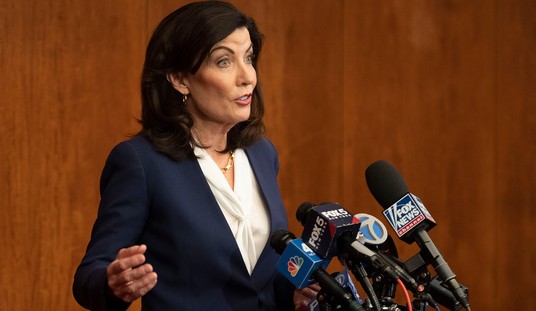Recently I discussed with Dr. Michael Anestis the “2022 Report on Firearms in New Jersey”. Anestis is the Executive Director of the New Jersey Gun violence Research Center. While chatting with Anestis he was pleased to announce to me the release of another paper he wrote that came out that very day, “Evaluation of Safe Firearm Storage Messaging in a Sample of Firearm-Owning US Military Service Members”. The study and subsequent paper discusses who “credible messengers” are on so-called “safe” firearm storage among service members. There’s a lot to unpack, but the crux that was found is that physicians are not recognized by military service members as the best “credible messenger” on the topic.
For starters, I think it’s incredibly important to point out the finding that doctors were not as well received as being the bearers of information on how one should store their firearm. Anestis discusses these “credible messengers” in a release.
“These findings line up with what we have been finding consistently across prior work relying on self-report surveys: that law enforcement – or security forces in the case of the military – is seen as a particularly compelling voice on this issue,” said Michael Anestis, lead author of the study and executive director of the New Jersey Gun Violence Research Center at Rutgers and an associate professor at the Rutgers School of Public Health. “It might be that law enforcement is viewed as having more experience with and knowledge about firearms and that they are not viewed pushing a political agenda on this issue. Regardless of the reason, their voices may be key in getting service members to adopt safe firearm storage practices with their personally owned firearms.”
That latter part in Anestis’s commenary is worth a closer look, how law enforcement is not “viewed pushing a political agenda on this issue.” That’s a very salient point given the incredible bias the medical field has against firearms and in particular how one stores a firearm. We’ve all seen the medical field wage war on gun owners more and more over the years. Doctors are becoming weapons against our liberties in certain regards, as well as becoming barriers to care in some instances in some jurisdictions. From the study, so-called “safe” gun storage is discussed.
Our outcome variables included participants’ willingness to use 7 different firearm storage practices. The options included 4 at-home storage approaches (unloaded, separate from ammunition, in a locked location, and with a locking device) and 3 away-from-home storage approaches (with a family member or friend, with a firearm retailer, or with a law enforcement agency).
From the study’s perspective, “unloaded, separate from ammunition, in a locked location, and with a locking device” are the only “safe” gun storage options available for people inside their homes. When it comes to “credible messengers”, how can anyone in the medical field be shocked by a firearm owner’s unwillingness to find another in the medical field to be credible, when the topic of storage always defaults to the manner described?
When doctors, physicians, the CDC, the American Academy of Pediatrics, et.al. highlight that firearms can and do save lives, there is not a one size fits all solution to firearm storage, and that mistakes that doctors make account for more lives lost annually by a factor of ten than lives taken via firearms, then we can start to have an actual conversation about credibility. Even though the data within this study, and it’s cited that similar findings show a lot of the same elsewhere, the authors still doubled down in the paper stating:
At the univariate level, there is modest evidence to suggest the risk of iatrogenic effects is lower for the security forces and combat controller than for the primary care physician. Findings indicating that physicians may not be optimal messengers for broad public health messaging efforts, however, do not imply that clinical interactions focused on safe firearm storage are ineffective.
If we need to look further on what a “credible messenger” is, perhaps we need to look at who else is using that term.
From a Moms Demand Action press release:
“While our dedicated staff of credible messengers work on the ground in gun violence prevention and intervention, to fully realize the elimination of juvenile detention will require cross-system collaboration across our state. We are optimistic that the proposed Office of Firearm Violence Prevention can further our collective impact.”
From the Philadelphia Center for Gun Violence Reporting:
The Credible Messenger Reporting Project empowers people impacted by gun violence to report on root causes, lived experience and possible solutions from the community perspective. Credible Messengers are paired with advanced professional journalists to learn from each other and leverage their combined authority to produce and distribute independent news reports, with support provided by the Center.
From a WFTV9 News report “Moms Demand Action push for gun safety in wake of child shootings”:
According to Moms Demand Action, the violence isn’t slowing down and the time for action is now.
Right now, their big push is getting out into the community with other groups to try and stem the tide of violence
In areas like Pine Hills, they have started partnering with the group Credible Messengers of Florida to help spread the word.
From a Giffords press release, “The New Giffords Center for Violence Intervention Will Transform Public Safety”:
And we’re already seeing big results. America is witnessing a historic moment in terms of awareness and support for CVI strategies, which can include street outreach work, hospital-based violence intervention programs, and other approaches that work with credible messengers to directly address the root causes of violence and intervene with individuals at the highest risk.
Giffords Center for Violence Intervention’s ongoing advocacy—and that of our many partners—has helped establish these solutions as priorities for the Biden administration and for states across the country. Between 2017 and 2021, state investments in CVI strategies increased by more than $600 million. Cities are launching Offices of Violence Prevention and using federal funds through the American Rescue Plan Act to expand their CVI infrastructure.
Giffords on Intervention Strategies:
Oftentimes, HVIPs leverage credible messengers—individuals in good standing with their community who typically have been personally impacted by violence—to meet survivors at bedside during a vulnerable time in their life and offer them resources with the mission to decrease the likelihood of re-injury or retaliation.16 This approach has been shown to stop the revolving door of violent injury seen in too many American hospitals and trauma centers.
So what’s a “credible messenger”? It’s a phrase that should make Second Amendment supporters’ ears perk up. Why would a so-called academic paper use the same exact phrasing that all of the anti-gun groups uses? If we had to gather where there may or may not be a bias, perhaps it can be pegged right there in their own messaging within the study’s report.
In this comparative effectiveness study, we aimed to build on the literature regarding safe firearm storage messaging by leveraging an experimental design to test the association of messenger profession, gun-friendly text, and home protection text on openness to various firearm storage practices among firearm-owning US service members. We were interested in the association of exposure to specific messages on openness to 4 at-home firearm storage practices (unloaded, separately from ammunition, in a locked location, and with a locking device) and 3 away-from-home firearm storage practices (with a family member or friend, at a firearm retailer, or at a law enforcement agency).
In short, they’re trying to find ways to make people store firearms the way they want them stored. Their storage method is in a manner that’s inconsistent with the Heller decision (to start with). While this study is coming from a suicide prevention perspective, not a constitutional one, that does not change the fact that the exact same rhetoric is used over and over again from the medical field. To hear the same message, without wavering from it at all, even a little to acknowledge the fact that firearms do save lives and are useless if they’re unloaded, is completely saccharine and inauthentic. These doctors would get a little more credibility if they do distinguish that their recommendation is of a voluntary nature and that any statute that dictated that storage method would be considered unconstitutional. These so-called studies are carrying the water of the anti-gun groups and doing a close read is all that needs to be done to prove it.
In my own humble opinion, there might be an element of tribalism going on here. Who would a member of the police or military be more inclined to take advice from? Someone from their own tribe, or cloth. Distilling the findings in such a way might diminish all the “work” done here, but really, it kinda points that way. I would not be shocked if they found doctors found other doctors to be “credible messengers”, or pinko commies found the advice of far left Democrats to be more appealing. Is it too naïve to think that people tend to trust their own? How much money went into this study to “prove” this?
Doctors and physicians have a huge role to play when it comes to our wellness, just not when it comes to anything involving firearm storage. Discussing firearms is a boundary violation and beyond the scope of their practice. Doctors do not take a special course on firearms on becoming firearm experts. I’m willing to wager that if a doctor’s insurance company knew they were talking about guns with their patients, they’d have a problem with that.
If your doctor wants to discuss actual and real “gun safety”, not the brand that’s pushed by establishment medicine, you’re sharp enough to know the difference. Otherwise, you know the drill. Tell em’ they’re out of bounds. Don’t answer. Or, as long as you’re not legally bound to tell the truth, and this is not legal advice, lie if you have to, in order to move on and get your medical care free from a lecture on how else you’re supposed to live your life.
As for now, let’s all focus on the fact that this study shows that doctors are not embraced as “credible messengers” when it comes to gun storage. Let’s also remember what to think of when we hear the phrase “credible messengers”, and that’d be gun grabbers.








Join the conversation as a VIP Member